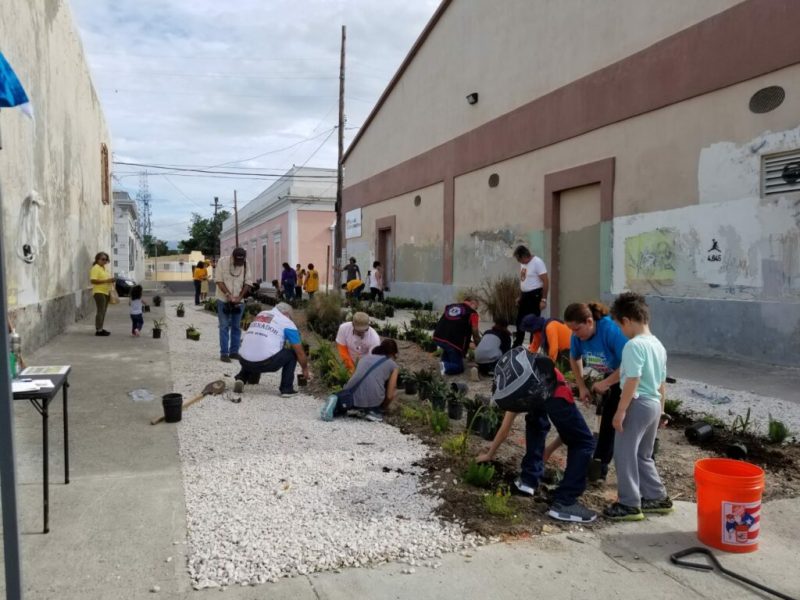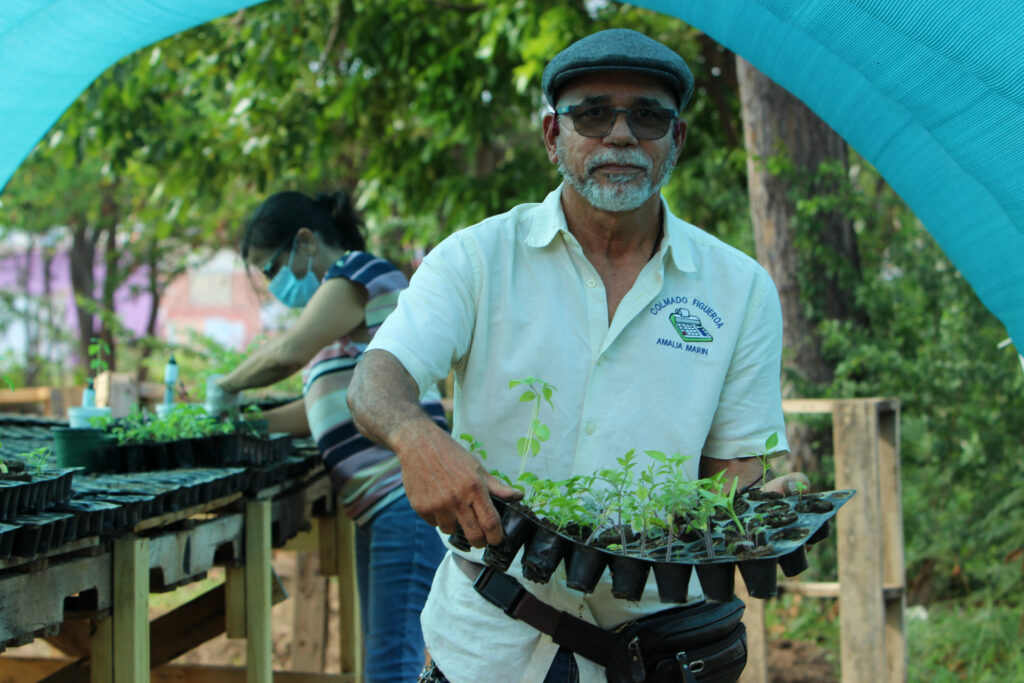
Un Nuevo Amanecer (UNA) was founded in 2018 after hurricanes Irma and Maria crippled Puerto Rico. Particularly impacted was UNA’s home of barrio Playa de Ponce, a low-lying coastal community already at extreme risk from coastal storms, riverine flooding, and urban stormwater runoff due to insufficient municipal infrastructure – and where 67% of residents live in poverty. In 2020, a 6.4 magnitude earthquake compounded Ponce’s woes, deepening distrust in the government’s ability to manage crises. With an eye towards the future, Un Nuevo Amanecer, Spanish for “a new dawn,” not only responds to immediate disasters, but is reimagining resilience through action: beach cleanups, tree plantings, community gardens, health fairs, home repairs, disaster preparedness, and revitalizing neglected properties to boost the local economy and strengthen infrastructure. Backed by the National Fish and Wildlife Foundation’s National Coastal Resilience Fund, UNA is currently developing green infrastructure projects that protect and restore fish and wildlife habitats while simultaneously safeguarding human communities.

From left to right: Un Nuevo Amanecer, Inc., founders Pastor Roberto Ortiz, vice president, and Ramón Figueroa, president, along with institutional liaison and neighbor, David Southgate.
In the small, predominately Hispanic barrio of La Playa, UNA proves that change starts at home. Residents elected by their neighbors hold all leadership positions in the grassroots group, and their community-driven approach is delivering powerful results: they’ve mapped 170 unused properties, gathered insights from 240 households about flooding impacts and desired mitigation, and secured $1.2 million for transformative projects. Working alongside the Municipality of Ponce in 2024, UNA helped design a state-of-the-art Community Resilience Hub and a nature-based river system to control flooding. In 2025, their efforts bore fruit with three major breakthroughs: a comprehensive community resilience plan that includes risk assessment and concrete funding strategies; a Department of Energy-supported project to create a stable renewable energy grid, addressing the crisis of chronic blackouts; and a Department of Justice-supervised Consent Decree with the EPA that finally forces the city to fix the sewage system contaminating flood waters. These victories, backed by a $1.1 million mutual aid fund for solar panels, a community kitchen, and freshwater storage, show how determined local leadership can transform a vulnerable community’s future.

Un Nuevo Amanecer’s community garden project.